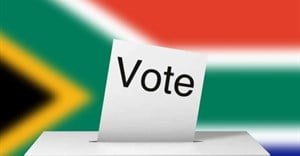Trending
Elections 2024
Icasa expresses concern regarding CAF and SuperSport exclusivity deal

The media statement mentions failure on the part of Icasa and the Sports Broadcasting Amendment Regulations published at the end of March 2021.
With regards to the provision of sporting events on a non-exclusive basis, section 60(1) of the Electronic Communications Act (ECA) states that the subscription broadcasting services may not acquire exclusive rights that prevent or hinder the free-to-air broadcasting of national sporting events, as identified in the public interest from time to time, by Icasa.
Icasa is of the view that section 60(1) of the ECA does not prohibit the acquisition of exclusive rights. However, the law qualifies the parameters within which such acquisition may be effected i.e. such acquisition of exclusive rights must not, amongst others, have the effect of preventing or hindering the free-to-air broadcasting of national sporting events.
The regulations define "national sporting event" as a sporting event that is deemed to be of national interest and includes the South African Senior National Team or National Sporting Representative. The regulations further list CAF as a National Sporting Event only insofar as there is a national team concerned. Even though Kaizer Chiefs has a huge fan base in South Africa, it is not considered a Senior National Team. For instance, if the deal involved Bafana Bafana, this matter would have been completely different and Icasa says it would urgently intervene in that regard.
The chairperson of Icasa, Dr Keabetswe Modimoeng, says this is a clear case of commercial agreement between parties which is allowed in law and the SABC cannot attribute its commercial shortcomings to the regulator.
Modimoeng said, “Icasa regulations are a by-product of public consultation and we have done our part in this regard as the SABC participated fully in the development and the recent review of the Sports Broadcasting Regulations. Their accusation of Icasa in this matter is clearly inappropriate. If there is any view the SABC would like to share with the Authority our door is always open. We do not believe it is productive nor constructive to be receiving such media attributions from the public broadcaster without formal engagement.”




















